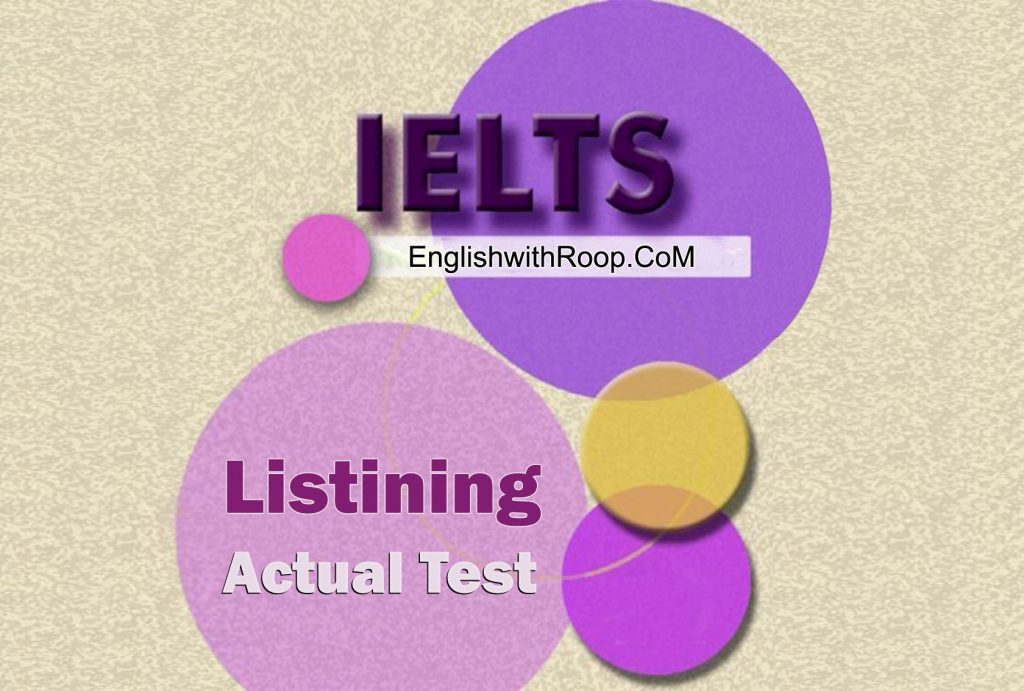IELTS Listening Section 1
Questions 1–10
Complete the notes below.
Write ONE WORD for each answer.
Transport Survey
Example
Traveled to town today: by bus
Name: Luisa 1 ……………..
Address: 2……………….. White Stone Rd
Area: Bradfield
Postcode: 3…………….
Occupation: 4…………..
Reason for a visit to town: to go to the 5…………..
Suggestions for improvement:
- better 6…………..
- have more footpaths
- more frequent 7………………
Things that would encourage cycling to work:
- having 8…………….. parking places for bicycles
- being able to use a 9………….. at work
- the opportunity to have cycling 10………….. on busy roads
IELTS Listening Section 2
IELTS Listening Practice Test 22 With Answers
Questions 11–20
Questions 11-14
Choose the correct letter, A, В or C.
New city developments
11 The idea for the two new developments in the city came from
A local people
B the City Council
C the SWRDC
12 What is unusual about Brackenside pool?
A its architectural style
B its heating system
C its method of water treatment
13 Local newspapers have raised worries about
A the late opening date
B the cost of the project
C the size of the facilities
14 What decision has not yet been made about the pool?
A whose statue will be at the door
B the exact opening times
C who will open it
Questions 15–20
| Features A ancient forts В waterways C ice and snow D jewels E local animals F mountains G music and film H space travel I volcanoes |
Areas of the world
15 Asia
16 Antarctica
17 South America
18 North America
19 Europe
20 Africa
IELTS Listening Section 3
Questions 21-23
IELTS Listening Practice Test 22 With Answers
Choose THREE tetters, A-G.
Which THREE factors does Marco’s tutor advise him to consider when selecting a course?
A possibility of specialisation
B relevance to future career
C personal interest
D organisation of course
E assessment methods
F range of topics
G reputation of lecturer
Questions 24-27
Choose the correct letter, A, B or C.
24 Why does Marco’s tutor advise him to avoid the Team Management course?
A It will repeat work that Marco has already done.
B It is intended for students at a lower level than Marco.
C It may take too much time to do well.
25 Why does Marco want to do a dissertation?
A He thinks it will help his future career.
B He would like to do a detailed study.
C He has already done some work for it.
26 What does Marco’s tutor think about the dissertation outline?
A The topic is too narrow to be useful.
B The available data may be unsuitable.
C The research plan is too complicated.
27 What does Marco decide to do about his dissertation?
A contact potential interviewees
B change to another topic
C discuss it with Professor Briggs
Questions 28-30
Complete the sentences below.
Write NO MORE THAN TWO WORDS for each answer.
Practical details
28 A first draft of the dissertation should be completed by the end of ……………
29 The dissertation should be registered with the………………..of the department.
30 Marco should get a copy of the statistics software from the…………….
IELTS Listening Section 4
Questions 31-33
IELTS Listening Practice Test 22 With Answers
Complete the notes below.
Write ONE WORD ONL Yfor each answer.
The Tiger Shark
- Origin of name: its dark bands
- Size: 6.5 metres (maximum)
- Preferred habitat: near to the 31…………….
- Typical food: other sea creatures but also 32………….. produced by humans
- Raine Island area: studies show tiger sharks are mainly found here during
- the 33…………. (when turtles are nesting)
Questions 34-38
Complete the flow-chart below.
Write ONE WORD ONLY for each answer.
Pieces of 34…………….. were attached to lines as bait
The lines were 35……………..
The hooked shark was brought to the 36……………… and secured
The shark was measured and tagged, and tissue removed for research
Larger sharks: an acoustic tag was fitted or a 37……………. was attached
The shark was 38…………….. and could be tracked
Questions 39, 40
Choose the correct letter, A, B or C.
39 The purpose of the research was to understand the tiger sharks’
A reproductive patterns.
B migration patterns.
C feeding patterns.
40 Observations showed that, in general, tiger sharks
A change depths frequently.
B usually avoid the surface of the water.
C often spend long periods on the ocean floor.



